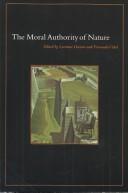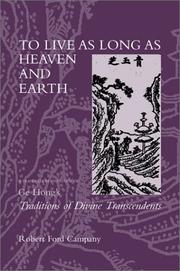| Listing 1 - 9 of 9 |
Sort by
|
Book
ISBN: 2855396352 Year: 2006 Publisher: Hong Kong / Paris The Chinese University Press of Hong Kong / EFEO
Abstract | Keywords | Export | Availability | Bookmark
 Loading...
Loading...Choose an application
- Reference Manager
- EndNote
- RefWorks (Direct export to RefWorks)
religion --- Ancient China --- Medieval China --- Taoism --- local religion --- Modern China
Book
ISBN: 9783111366876 3111366871 3111364860 Year: 2024 Publisher: Berlin ; Boston : De Gruyter,
Abstract | Keywords | Export | Availability | Bookmark
 Loading...
Loading...Choose an application
- Reference Manager
- EndNote
- RefWorks (Direct export to RefWorks)
How can time become festive? How do festivals manage to make time 'special', to mark out a certain day or days, to distinguish them from 'normal', everyday time, and to fill them with meaning? And how can we reconstruct what festive time looked like in the past and what people thought about it? While a lot of research has been done on festivals from the point of view of several scholarly disciplines, the specific temporality of festivals has not yet attracted sufficient attention. In this volume, scholars from different fields provide answers to the questions raised above, based on a fresh analysis of astronomical documents, calendars, and literary texts. Cultures as diverse as ancient Babylon, Greece and Rome, and medieval China all share a sense of calendrically recurring festive time as something special that needs to be carefully mapped out and preserved, often with great sophistication, and that gives us precious insights into the broader religious, political, and social dimensions of time within past cultures.
Augustan Rome. --- Babylonian astronomy. --- Classical Greece. --- Medieval China.
Book
ISBN: 9781802702767 1802702768 180270177X Year: 2024 Publisher: Amsterdam : Arc Humanities Press,
Abstract | Keywords | Export | Availability | Bookmark
 Loading...
Loading...Choose an application
- Reference Manager
- EndNote
- RefWorks (Direct export to RefWorks)
Shows how the accomplished poets of the Cao court in early medieval China, following the fall of the Han empire, drew on experiences of loss to reinvent the court and establish, develop, and sustain a community in difficult times.
HISTORY / Asia / China. --- Cao Pi. --- Cao Zhi. --- Chinese lyric poetry. --- early medieval China.
Book
ISBN: 0824886879 9780824886875 9780824886882 0824886887 9780824886899 9780824884437 0824893905 0824884434 0824886895 9780824893903 Year: 2021 Publisher: Honolulu
Abstract | Keywords | Export | Availability | Bookmark
 Loading...
Loading...Choose an application
- Reference Manager
- EndNote
- RefWorks (Direct export to RefWorks)
What is Buddhist meditation? What is going on—and what should be going on—behind the closed or lowered eyelids of the Buddha or Buddhist adept seated in meditation? And in what ways and to what ends have the answers to these questions mattered for Buddhists themselves? Focusing on early medieval China, this book takes up these questions through a cultural history of the earliest traditions of Buddhist meditation (chan), before the rise of the Chan (Zen) School in the eighth century. In sharp contrast to what would become typical in the later Chan School, early Chinese Buddhists approached the ancient Buddhist practice of meditation primarily as a way of gaining access to a world of enigmatic but potentially meaningful visionary experiences. In Chan Before Chan, Eric Greene brings this approach to meditation to life with a focus on how medieval Chinese Buddhists interpreted their own and others’ visionary experiences and the nature of the authority they ascribed to them. Drawing from hagiography, ritual manuals, material culture, and the many hitherto rarely studied meditation manuals translated from Indic sources into Chinese or composed in China in the 400s, Greene argues that during this era meditation and the mastery of meditation came for the first time to occupy a real place in the Chinese Buddhist social world. Heirs to wider traditions that had been shared across India and Central Asia, early medieval Chinese Buddhists conceived of “chan” as something that would produce a special state of visionary sensitivity. The concrete visionary experiences that resulted from meditation were understood as things that could then be interpreted, by a qualified master, as indicative of the mediator’s purity or impurity. Buddhist meditation, though an elite discipline that only a small number of Chinese Buddhists themselves undertook, was thus in practice and in theory constitutively integrated into the cultic worlds of divination and “repentance” (chanhui) that were so important within the medieval Chinese religious world as a whole.
Zen Buddhism --- Meditation --- Buddhism. --- Dhyāna (Meditation) --- Meditation (Buddhism) --- Meditation (Lamaism) --- Tantric Buddhism --- Buddhist. --- Chinese Buddhists. --- east asian Buddhist. --- medieval China. --- meditation.
Book
ISBN: 884354411X 9788843544110 Year: 1993 Publisher: Mailand Fondazione Thyssen-Bornemisza
Abstract | Keywords | Export | Availability | Bookmark
 Loading...
Loading...Choose an application
- Reference Manager
- EndNote
- RefWorks (Direct export to RefWorks)
Book
ISBN: 9048555264 9048563550 9463721177 Year: 2023 Publisher: Amsterdam : London : Amsterdam University Press, Bloomsbury Publishing (UK),
Abstract | Keywords | Export | Availability | Bookmark
 Loading...
Loading...Choose an application
- Reference Manager
- EndNote
- RefWorks (Direct export to RefWorks)
This volume of interdisciplinary essays examines the intersection of religion and literature in medieval China, focusing on the impact of Buddhism and Daoism on a wide range of elite and popular literary texts and religious practices in the third to eleventh centuries CE. Drawing on the work of the interdisciplinary scholar Stephen Bokenkamp, the essays weave together the many cross-currents of religious, intellectual, and literary traditions in medieval China to provide vivid pictures of medieval Chinese religion and culture as it was lived and practiced. The contributors to the volume are all highly regarded experts in the fields of Chinese poetry, Daoism, Buddhism, popular religion, and literature. Their research papers cut across imagined disciplinary boundaries to show that the culture of medieval China can only be understood by close reading of texts from multiple genres, traditions, and approaches.
Buddhism --- Poetry --- Taoism. --- Taoism --- History. --- Religious aspects --- Buddhism. --- Daoism, Buddhism, medieval China, medieval poetry. --- Chinese poetry --- History and criticism. --- Buddhist poetry --- History --- Taoist poetry

ISBN: 1282738402 9786612738401 0226136825 9780226136820 0226136809 9780226136806 0226136817 9780226136813 Year: 2004 Publisher: Chicago University of Chicago Press
Abstract | Keywords | Export | Availability | Bookmark
 Loading...
Loading...Choose an application
- Reference Manager
- EndNote
- RefWorks (Direct export to RefWorks)
For thousands of years, people have used nature to justify their political, moral, and social judgments. Such appeals to the moral authority of nature are still very much with us today, as heated debates over genetically modified organisms and human cloning testify. The Moral Authority of Nature offers a wide-ranging account of how people have used nature to think about what counts as good, beautiful, just, or valuable. The eighteen essays cover a diverse array of topics, including the connection of cosmic and human orders in ancient Greece, medieval notions of sexual disorder, early modern contexts for categorizing individuals and judging acts as "against nature," race and the origin of humans, ecological economics, and radical feminism. The essays also range widely in time and place, from archaic Greece to early twentieth-century China, medieval Europe to contemporary America. Scholars from a wide variety of fields will welcome The Moral Authority of Nature, which provides the first sustained historical survey of its topic. Contributors: Danielle Allen, Joan Cadden, Lorraine Daston, Fa-ti Fan, Eckhardt Fuchs, Valentin Groebner, Abigail J. Lustig, Gregg Mitman, Michelle Murphy, Katharine Park, Matt Price, Robert N. Proctor, Helmut Puff, Robert J. Richards, Londa Schiebinger, Laura Slatkin, Julia Adeney Thomas, Fernando Vidal
Philosophy of nature --- Nature --- History. --- Moral and ethical aspects --- nature, science, ethics, cloning, genetically modified organisms, genetic engineering, good, virtue, beautiful, aesthetics, justice, value, radical feminism, economics, ecology, race, norms, unnatural, inhuman, monstrosity, sexual disorder, medieval, china, ancient greece, nonfiction, philosophy, allegory, enlightenment, works and days, hesiod, attention, gender, goethe, onanism, liberation, control, human experimentation.

ISBN: 1283277026 9786613277022 0520927605 1597349593 9780520927605 1417523875 9781417523870 9781597349598 9780520230347 0520230345 Year: 2002 Publisher: Berkeley University of California Press
Abstract | Keywords | Export | Availability | Bookmark
 Loading...
Loading...Choose an application
- Reference Manager
- EndNote
- RefWorks (Direct export to RefWorks)
In late classical and early medieval China, ascetics strove to become transcendents--deathless beings with supernormal powers. Practitioners developed dietetic, alchemical, meditative, gymnastic, sexual, and medicinal disciplines (some of which are still practiced today) to perfect themselves and thus transcend death. Narratives of their achievements circulated widely. Ge Hong (283-343 C.E..) collected and preserved many of their stories in his Traditions of Divine Transcendents, affording us a window onto this extraordinary response to human mortality. Robert Ford Company's groundbreaking and carefully researched text offers the first complete, critical translation and commentary for this important Chinese religious work, at the same time establishing a method for reconstructing lost texts from medieval China. Clear, exacting, and annotated, the translation comprises over a hundred lively, engaging narratives of individuals deemed to have fought death and won. Additionally, To Live as Long as Heaven and Earth systematically introduces the Chinese quest for transcendence, illuminating a poorly understood tradition that was an important source of Daoist religion and a major social, cultural, and religious phenomenon in its own right.
Taoists --- Ge, Hong, --- Taoists - China - Biography --- Ge, Hong, - 284-364. - Shen xian zhuan --- alchemy. --- ancient china. --- archival work. --- ascetics. --- buddhism. --- china. --- chinese history. --- chinese texts. --- classicism. --- daoism. --- discipline. --- divinity. --- eastern philosophy. --- gymnastics. --- immortals. --- lost texts. --- medicine. --- medieval china. --- meditation. --- mortality. --- nonfiction. --- paranormal. --- philosophy. --- religion. --- sexual discipline. --- sexual practices. --- spirituality. --- supernatural being. --- supernatural powers. --- supernatural. --- taoism. --- to live as long as heaven and earth. --- traditions of the divine transcendents. --- transcend death. --- transcendents. --- transfiguration.
Book
ISBN: 1641894253 1641894261 1641899638 Year: 2020 Publisher: Leeds : Arc Humanities Press,
Abstract | Keywords | Export | Availability | Bookmark
 Loading...
Loading...Choose an application
- Reference Manager
- EndNote
- RefWorks (Direct export to RefWorks)
The creative reuse of materials, texts, and ideas was a common phenomenon in the medieval world. The seven chapters offer here a synchronic and diachronic consideration of the receptions and meanings of events and artifacts, analyzing the processes that allowed medieval works to remain relevant in sociocultural contexts far removed from those in which they originated. In the process, they elucidate the global valences of recycling, revision, and relocation throughout the interconnected Middle Ages, and their continued relevance for the shaping of modernity. The essays examine cases in the Arab and Muslim world, China and Mongolia, and the Prussian-Lithuanian frontier of eastern Europe.
Intercultural communication --- Civilization, Medieval. --- Literature, Medieval --- History --- History and criticism. --- Early Islamic History. --- Jennifer Purtle. --- Late Abbasid Period. --- Medieval China. --- Medieval Mongolia. --- Meredyth Lynn Winter. --- Prussian-Lithuanian Frontier. --- Ryan J. Lynch. --- Sino-Mongol Quanzhou. --- al-Balādhurī. --- circular economy. --- medieval globe. --- medieval material culture. --- recycling, medieval. --- spolia. --- Civilization, Medieval --- Medieval civilization --- Middle Ages --- Civilization --- Chivalry --- Renaissance --- Cross-cultural communication --- Communication --- Culture --- Cross-cultural orientation --- Cultural competence --- Multilingual communication --- Technical assistance --- Anthropological aspects
| Listing 1 - 9 of 9 |
Sort by
|

 Search
Search Feedback
Feedback About UniCat
About UniCat  Help
Help News
News